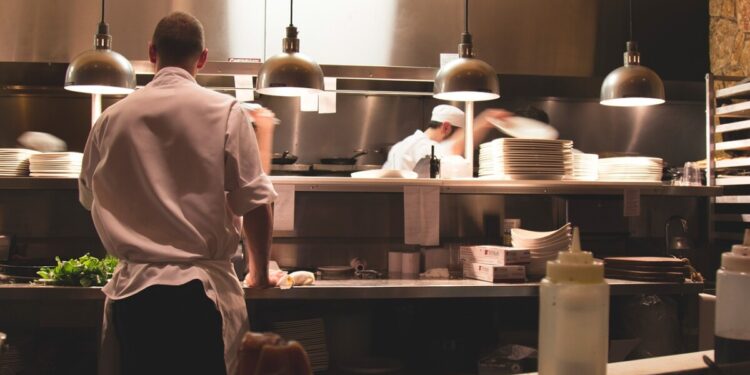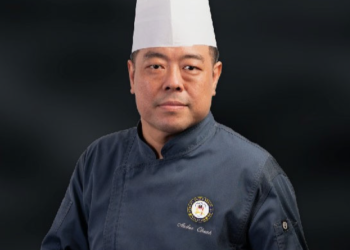Akansha Pandey (cbedit@imaws.org)
With aspirational travel on the rise, consumers are getting more exposed to global food and dining trends. They soak in first-hand experiences when they travel and listen to word of mouth through near and dear ones. Likewise, consumer demands have been evolving ever since and accordingly the industry has been striving to meet customer expectations. Dealing with F&B brands in setting up their outlets, commercial kitchen consultants throw light on the changing consumer preferences and the brand owner’s perspective in recent times.

Today when brands think of launching some F&B space, they aim for a fresh and catchy look and feel. ‘How do I attract more people?’ ‘How do I ensure that my kitchen is the best or my food court offers the best experience’ Such questions linger on the minds of the owners. Earlier the owners never used to get involved, especially in the commercial kitchen consulting. For them, the frontend was more significant. However, in today’s time, from architecture to kitchen safety and technology support, the owners are part of all the processes. highlights Swarn Kamal the Principal Consultant at Opstrah Consulting in Bengaluru (a seven-year-old company which has served up to 100 clients).
Specialising in commercial kitchen consulting and food court planning, Kamal adds, “Nowadays, F&B brands are looking at creating their niche identity. They wish to be as unique as possible and command an outstanding unique selling proposition. Like display kitchens are a rage for some time now. Live cooking counters are something every other owner asks for. It makes the whole F&B set-up more appealing and engaging to the customer’s eyes. Also, post-COVID-19 F&B brands have realised the potential of cloud kitchens. For businesses managing more than one food brand, cloud kitchen comes over as a viable option which creates additional revenue for the owners. Similarly, brands are also leaving no stone unturned to win over the confidence of the customer in terms of hygiene and sanitation, more so post COVID. Demand for technical support is in to ensure safety and security in the backend as well as maintain a virus-free ambience.”

Two to three decades ago, the culture was that of a coffee shop and a fine-dining multi-cuisine restaurant, with the latter offering a bouquet of different cuisines from different parts of the world at a single outlet. Whereas today, the industry has been waking up to standalone single cuisine restaurants – like those serving only Italian cuisine and Mongolian cuisine, which was not even imaginable maybe about 20 years ago. This shows that consumers want specific cuisine, a particular style of dining or a particular standard of service. Currently, more and more niche outlets are coming up in response to consumers’ requirements. The restaurant owners as well as the consumers are opening up to a lot of international cuisines and speciality restaurants, admits Sravan Kumar, Commercial Kitchen Consultant, Excellence Hospitality Projects (Hyderabad). Having been in the business for over 25 years, he has worked with over 100 clients in the F&B and hospitality domain to date.

Delhi-based Table and Fork Consultant company helmed by the Founder Anthony Philip has also seen the love for Japanese cuisine growing by leaps and bounds. Having been in the business for close to two decades and consulted for around 70 projects, Philip outlines, “The discerning high-end diner has definitely developed a love and taste for Japanese cuisine. This has in turn given birth to a number of speciality Japanese restaurants coming up in the vicinity of South Delhi and South Mumbai specifically. This is driven by both exposure of Indian tourists to Japan as well as a number of Japanese businesses setting shop in the Indian market. Even Indian travellers have started travelling abroad more frequently which has indeed enhanced their understanding of world cuisine.”
Throwing light on the owners’ preferences, Kumar shares that given the requirement of an F&B outlet is realistic, the owners are willing to spend to fill the gap. “Clients do understand that if you pay peanuts, you only get monkeys. So they are willing to put that extra rupee into the capital outlay. But certainly, the consultants need to assure them that you may not be able to get a return on this investment in the first year or second year, but in due course of time, this is going to help. We convince the owners technically. For example, maybe about seven to eight years ago, if you told somebody to put in a combi oven or dishwasher – costing in lakhs, owners won’t chip in. On the other hand, today they’re willing to accept it. The situation has changed. Owners buy the fact that making the kitchen more efficient and more mechanised will reduce too much dependency on labour.

Worked with over 320 brands to date and counting, Angad Chachra, the Founder of Delhi-based The Bar Consultants feels that the owners from tier two and tier three Indian cities are so unfiltered and unapologetic. They are absolutely at ease in not knowing certain dynamics of the trade and don’t shy away to ask for assistance. The know-it-all attitude of certain tier-one town owners at times leads them to failure of the business.
“The entire online platform has been the go-to option for a section of people where they feel that they can get educated from the internet. We get different types of clients from different cities. We’ve been working a lot in tier two and tier three cities and that’s the main focus right now. These owners actually don’t shy away from asking for help. We’ve noticed that brand owners from tier-one cities feel that they know it all and that’s the reason for failure. If you look at the failure rate of restaurants in tier one versus tier two and tier three towns, the failure rate is much more in tier-one cities as compared with the tier two and tier three cities. A couple of other factors such as real estate costs, etc. also lead to the downfall of the F&B businesses,” comments Chachra.
Underlining the major mistakes that the restaurant owners commit, Chachra says that a lack of right financial planning leads to a downturn in business. Not getting the financial planning in place is the biggest issue which actually leads to an unsuccessful venture. At times, he sees brands not spending enough on services, which really makes the difference. People spend a lot of money on interiors, which is something that will take the customer to that place once or twice. But from the third time onwards, it’s the food and beverage quality and good service which will last long, he admits.
THIS ARTICLE IS POWERED BY








